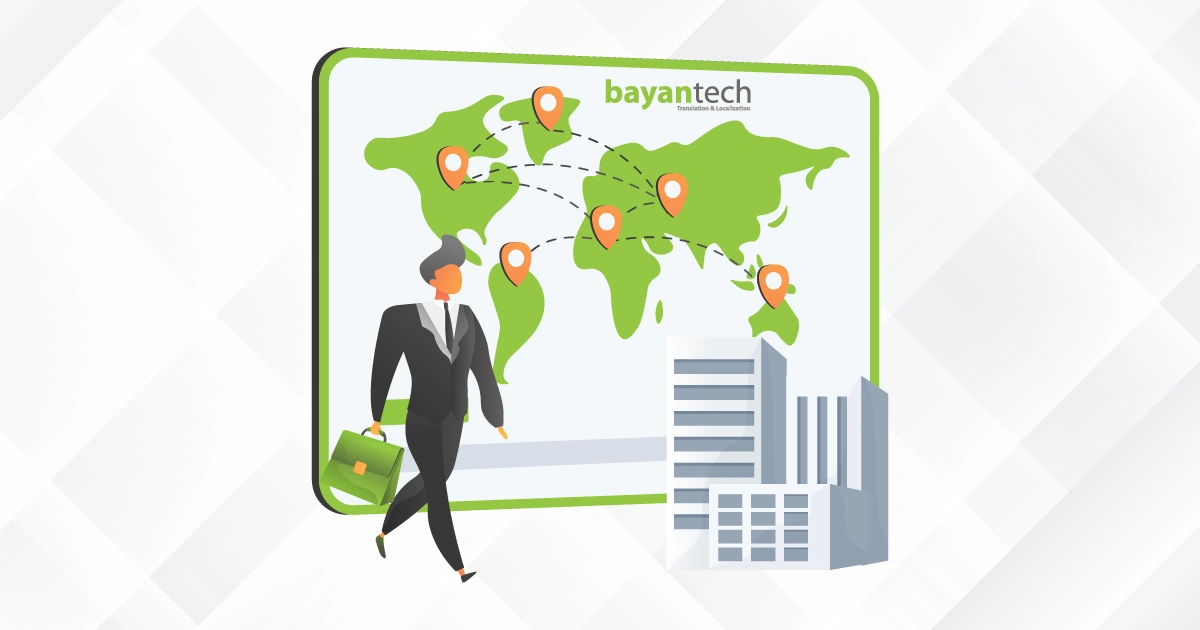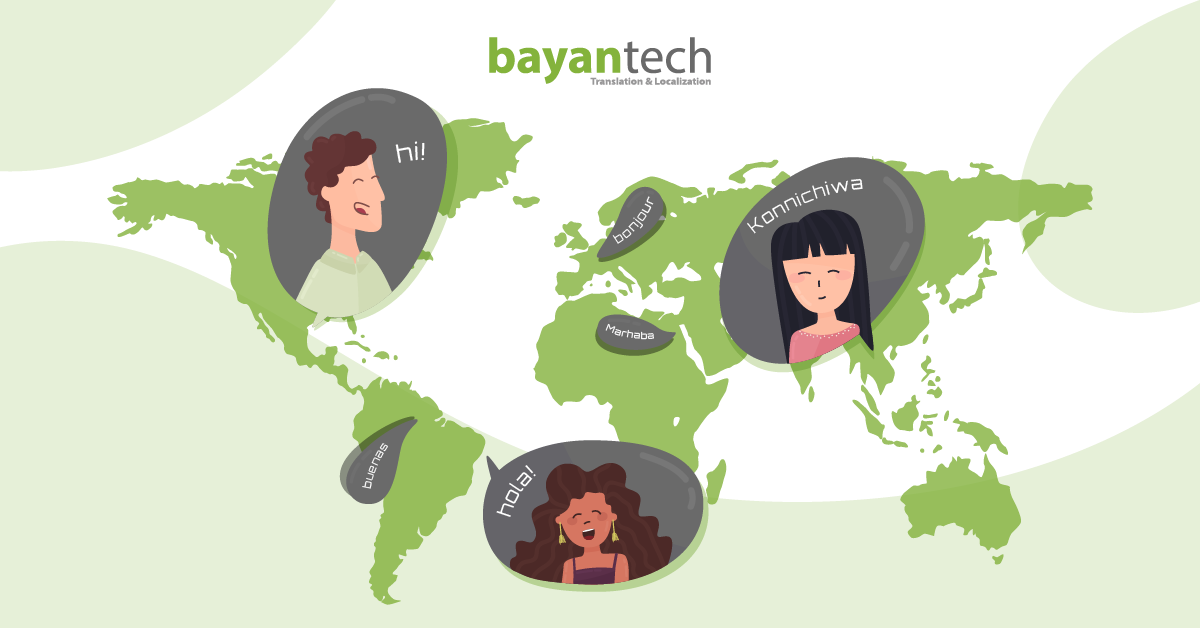Your business is thriving, and now you’re eyeing international markets. It’s a big step and an exciting one.
But going global isn’t as simple as copying what works at home. It takes careful planning, cultural understanding, and the flexibility to adapt to new markets.
Challenges like language barriers, regulations, and local competition are all part of the journey.
In this blog, we’ll break down what global expansion means, why it’s worth it, and how to approach it strategically for success.
Let’s break it down.
What Is Global Expansion and Why It Matters Now More Than Ever
Global expansion is the process of extending your business operations into international markets. It’s how brands move beyond their home country to serve customers worldwide.
Today, expanding globally is no longer just for massive corporations. Increased digital access, remote work infrastructure, and rising demand across countries have made it possible for businesses of all sizes to think internationally.
We see it everywhere: SaaS companies entering new regions, eCommerce brands shipping worldwide, and fintech startups scaling to serve diverse markets.
But in this borderless economy, having a great product or service isn’t enough. Success depends on how well you adapt through cultural understanding, compliance, and above all, localization that makes your brand feel native in every market.
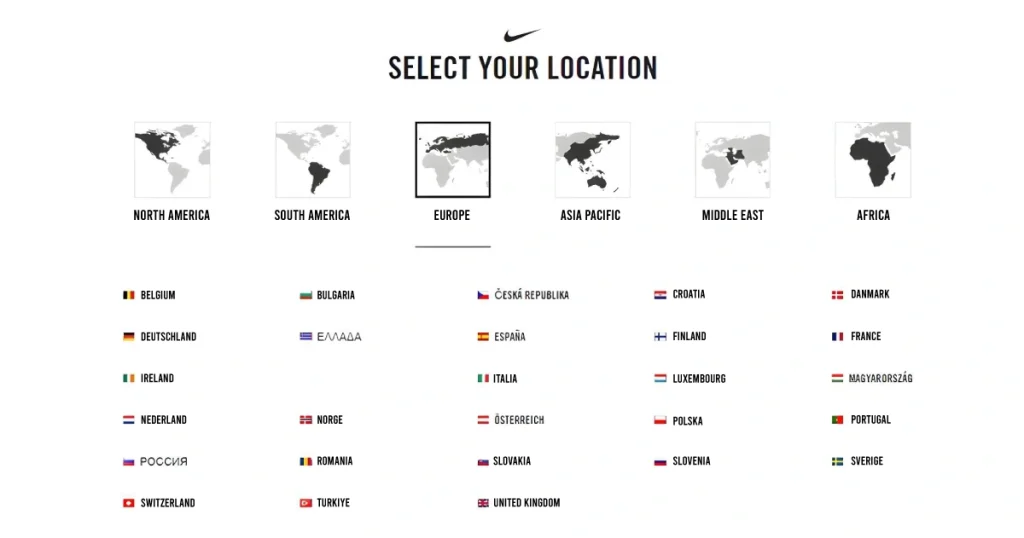
Why Companies Choose to Expand Internationally
Here’s why more businesses are making the leap into global markets:
- Unlock New Revenue Streams
- Entering multiple countries creates diverse income sources and reduces reliance on one market.
- Entering multiple countries creates diverse income sources and reduces reliance on one market.
- Access a Broader Talent Pool
- Global operations open doors to skilled professionals and allow for operational diversification.
- Global operations open doors to skilled professionals and allow for operational diversification.
- Gain a Competitive Advantage
- Serving underserved or emerging regions helps brands get ahead of competitors stuck in saturated markets.
- Serving underserved or emerging regions helps brands get ahead of competitors stuck in saturated markets.
- Build Brand Resilience
- Spreading exposure across geographies protects against market-specific risks and disruptions.
- Spreading exposure across geographies protects against market-specific risks and disruptions.
- Tailor Offerings to Each Target Market
- International reach means your products and services can evolve to meet local needs and preferences.
By entering new international markets, businesses future-proof their growth and build a loyal global customer base.
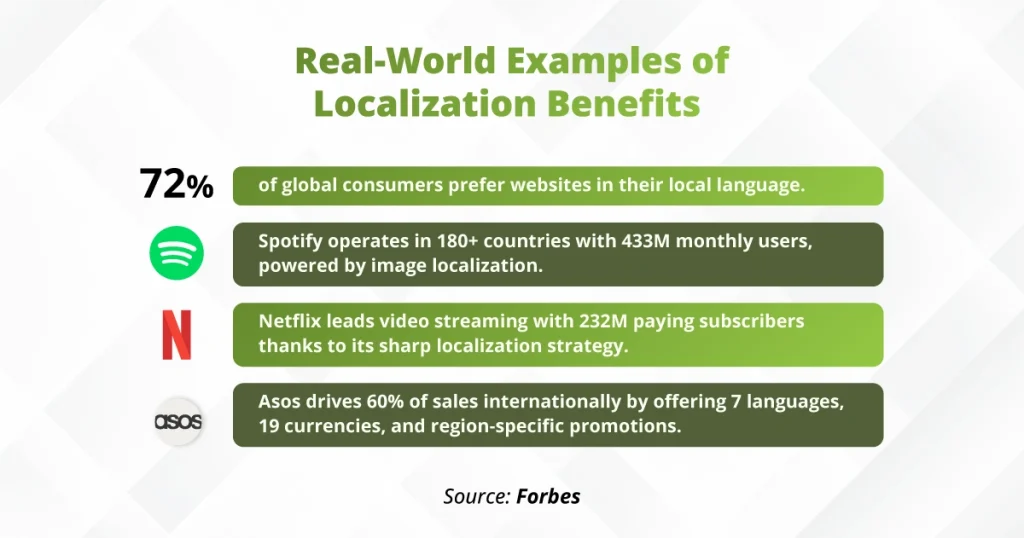
Global Expansion Strategy: What to Know Before You Go Global
A successful global expansion strategy is about alignment. To succeed, your international expansion plans must balance global goals with the unique needs of each local market.
Start with thorough market research. Understanding demand, cultural nuances, and local competitors will help you craft a market entry strategy that fits.
Regulatory compliance, logistics, and infrastructure readiness are equally critical; overlooking these can derail even the strongest brands.
Key factors to evaluate:
- Market Entry Strategy – Tailor your approach to local demand, regulations, and logistics.
- Business Operations Requirements – Plan for staffing, local partners, and Employer of Record (EOR) solutions.
- Cultural Sensitivity – Respect local cultures and practices to build trust and avoid costly missteps.
- Local Laws and Infrastructure – Stay informed to ensure smooth operations and compliance.
The Role of Localization in Going Global
From tailoring your UX and packaging to reflecting local holidays or humor, localization is the difference between being present in a market and actually connecting with customers.
Working with local experts is key. Their insights help you fine-tune content, visuals, and functionality to match regional expectations, making your brand feel native, not foreign.
Take Netflix, for example. Its success in international markets comes from localizing content libraries, subtitles, and marketing campaigns. By delivering content that feels designed for each market, Netflix became a household name globally.
Companies that skip localization often miss the mark because you can’t grow global if you don’t think local.
Learn the difference: localization vs internationalization
Global Expansion Without the Guesswork: Reducing Risk
International expansion comes with risks, but strong international business strategies and the right tools can help you navigate them confidently.
Here’s how to mitigate risk while growing globally:
- Hire Through an Employer of Record (EOR)Simplify compliance by partnering with an EOR to handle contracts, payroll, and HR in line with local laws and tax systems.
- Ensure Legal ClarityWork with local experts to stay compliant with regulations and avoid costly mistakes in new markets.
- Adapt Operations for Brand ConsistencyMaintain your global identity while allowing flexibility for local adaptation to avoid brand dilution.
- Use a Phased Market Entry StrategyStart small with pilot localization projects to test markets before committing fully.
- Leverage Scalable TechManage teams and workflows across multiple countries efficiently with cloud-based tools and platforms.
With the right planning and tools, you can mitigate risk while expanding into new international markets.
How Leading Companies Succeed in Global Expansion
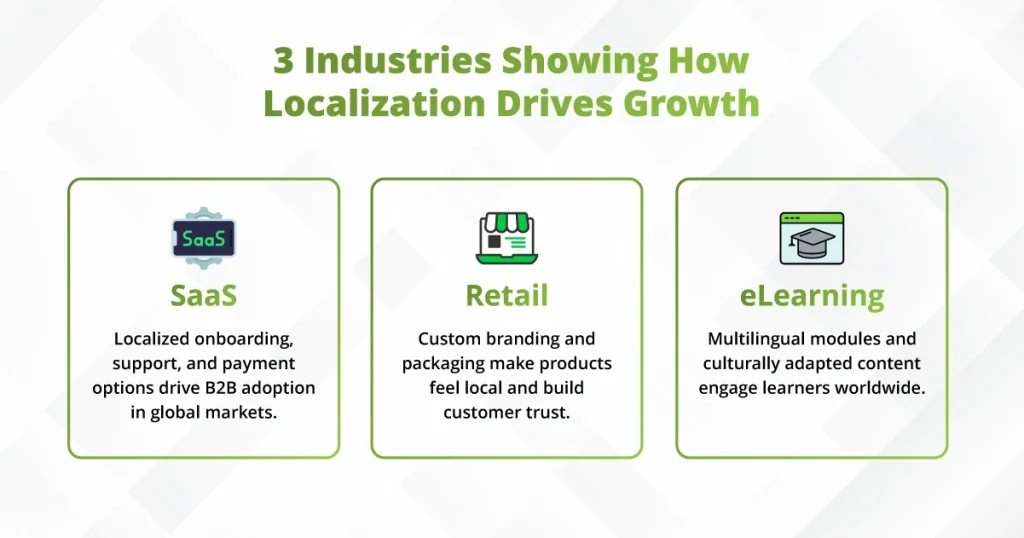
The most successful global businesses know one thing: They lean on localization and partnerships with local experts to ensure every rollout fits the region’s needs.
Here’s how different industries are getting it right:
- SaaS companies localize onboarding and support materials to help international clients adopt their platforms quickly. By adapting interfaces, documentation, and even payment options, they increase B2B adoption in diverse target markets.
- Retail brands create custom branding and packaging for each region. This attention to local preferences makes their products feel like a natural part of customers’ lives, not just imports.
- eLearning providers deploy global training programs with multilingual modules. By working with native linguists and cultural consultants, they ensure learners everywhere engage fully with their content.
The common thread? Each business worked closely with in-market teams or trusted localization partners to align with cultural, legal, and consumer expectations.
Companies that localize early—and do it well—set themselves up for a smoother, stronger global rollout.
Ready to Go Global? Let’s Make Your Expansion Strategy Work
Your journey into international markets deserves more than guesswork. With bayantech, you get the expertise to launch faster, scale smarter, and localize better, thanks to deep regional knowledge, compliance assurance, and a scalable infrastructure.
Whether you’re entering one new market or planning a full-scale global expansion strategy, we’re here to help every step of the way.
Launch faster, scale smarter, and localize better—with a team that knows how to build your global expansion strategy right.

